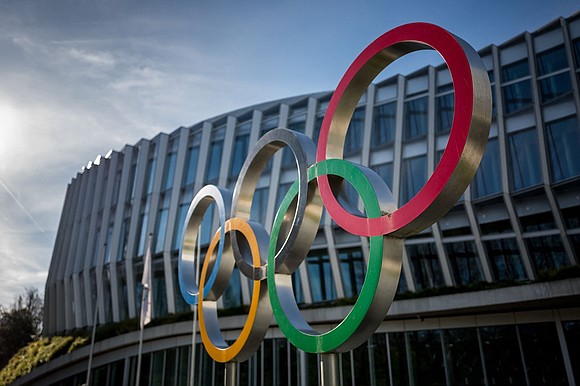Chinese swimmers head to Paris Olympics under a cloud amid row over handling of drugs tests
George Ramsay, CNN | 4/24/2024, 11:13 a.m.

A dispute over the handling of a 2021 case in which 23 Chinese swimmers tested positive for a banned performance-enhancing substance ahead of the Tokyo Olympics now threatens to overshadow swimming events at the Paris Games this summer.
A New York Times report released in coordination with German public broadcaster ARD revealed that Chinese athletes were allowed to compete – and win medals – in Tokyo three years ago, despite testing positive for heart medication trimetazidine several months earlier.
The World Anti-Doping Agency (WADA) has dismissed allegations that the case was mishandled, describing them as “outrageous” and “completely false,” while the China Anti-Doping Agency (CHINADA) has called media reporting about the situation “misleading.”
But the reports have also sparked anger among former and current Olympic athletes.
“People compete because they love to push themselves and race fairly,” Mack Horton, a former Australian swimmer and Olympic gold medalist, told the Sydney Morning Herald.
“The news compromises the integrity of sport in general, not just swimming. One of the greatest things about sport is the values and morals it instils in us all, the misalignment seen in this incident is jarring.
“We have global governing bodies in place for a reason. The expectation is that they set the tone for the sporting community to ensure a commitment to clean and equitable sporting endeavours.”
This is not the first time that Horton, who announced his retirement from swimming earlier this year, has taken a stance over doping allegations.
He refused to share the podium with China’s Sun Yang at the 2019 world championships in South Korea after calling his rival a drug cheat.
Sun had served a three-month suspension in 2014 for taking trimetazidine, which he said he took to treat a heart condition. He was banned from the sport over new doping violations in 2018 but an eight-year ban was reduced to just over four years in 2021.
Sun is now free to return to competitions next month, but revelations about the 2021 case have cast Chinese swimmers and WADA in a harsh spotlight.
“Why not release this information at the time, who really benefits from the lack of transparency and secrecy?” Britain’s Adam Peaty, a three-time Olympic gold medalist, wrote on X, formerly Twitter, adding, “So disappointing from WADA.”
The Canadian Olympic Committee called the media reports “concerning” and “not previously known to us,” while Sarah Hirshland, CEO of the US Olympic and Paralympic Committee, said that the organization was “deeply disheartened” about allegations which challenge “the very foundation of what fair competition stands for.”
In a press conference on Monday, WADA president Witold Banka said that the agency “followed all due processes and diligently investigated every lead and line of enquiry in this matter” and found “no evidence of wrongdoing … and no credible way to disprove the contamination theory that was accepted by CHINADA.”
A statement from CHINADA cited by Xinhua said the swimmers tested positive for an “extremely low concentration” of trimetazidine at a national swimming event in 2021.
Trimetazidine has the potential to boost endurance and has been banned by WADA since 2014.
CHINADA ultimately decided that the athletes should not be held responsible for the results after its “immediate” investigation concluded that they were inadvertently exposed to the substance through contamination, Xinhua reported.
During Monday’s press conference, WADA general counsel Ross Wenzel said that trimetazidine was detected in the kitchen of a hotel where the athletes were staying during a training camp.
“We have no evidence of any sort of skullduggery or planting of trimetazidine,” Wenzel said. “It would have been impossible for us to go to a tribunal and ask them to draw that inference without any evidence.”
In an exclusive interview with the Sydney Morning Herald, Australian swimming coach Denis Cotterell, who is currently working with the Chinese team ahead of the Paris Olympics, strongly rejected “claims of systemic doping” in China’s swimming program.
He said that, from the age of 14, Chinese swimmers are prohibited from eating in public due to the risk their food could be contaminated with a banned substance, telling the SMH: “People who come to China know that contamination is an issue.”
The newspaper noted that Cotterell wasn’t authorized to speak on behalf of the Chinese Swimming Association.
China’s national swimming championships, which serve as selection trials for the upcoming Olympics, are currently underway in Shenzhen, concluding on April 27. At the Tokyo Olympics, China won six medals in swimming, including three golds.



